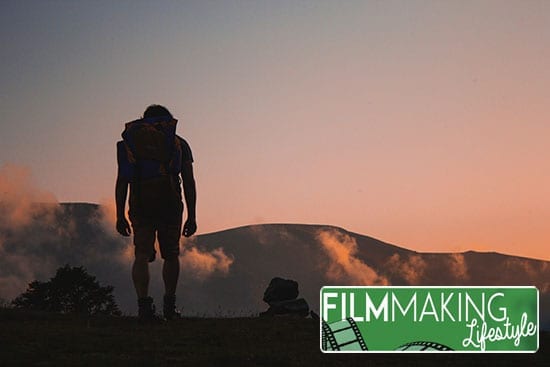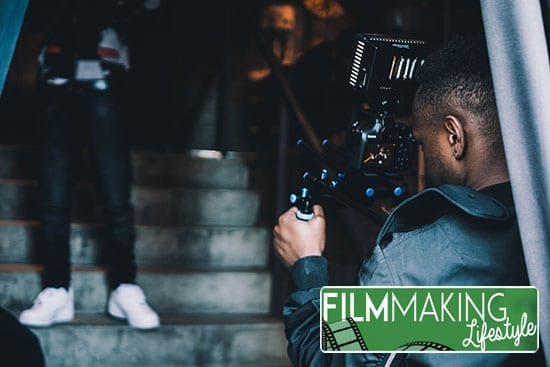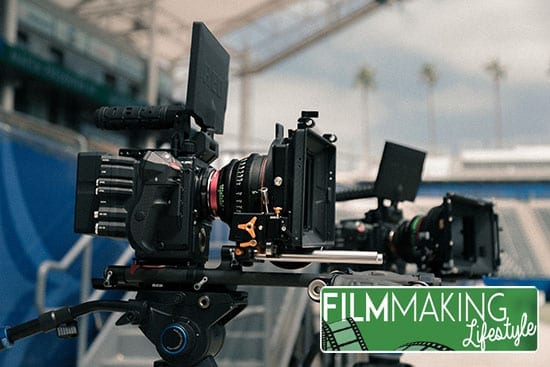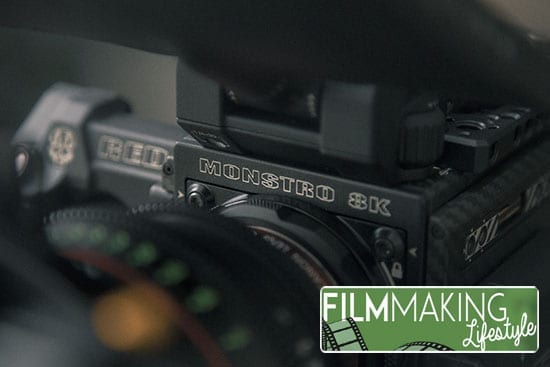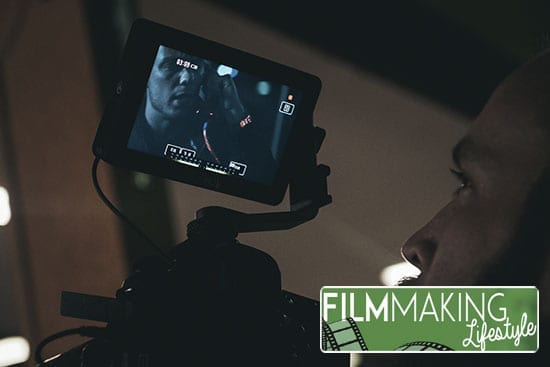We have an article today by filmmaker Albert Dabah on making a personal film. If you’re at all interested in making autobiographical type films, then this article will be very interesting to you. Take it away, Albert!
My name is Albert Dabah. For the last 40 years I’ve been creating a variety of video projects for clients at my company Simba Productions.
Over that time, I found that I was motivated to create a narrative project in addition to video work. After almost 20 years of planning, writing, and finally production, I completed my film Extra Innings last year.
Extra Innings is in many ways autobiographical. It is very personal and unique to me and my story. I was spurred to create it because I wanted to share my own experiences, and so much of what went into the final film – characters, impactful moments, conflicts – were based on events that I recall from my past.
This made it easier to create the film in some ways, yet also a lot harder. Condensing many years into a two hour film is quite challenging, particularly on a very modest budget. You have to narrow down what is most important to the story when it all feels important.
From the very first moment through to distribution, creating a film is always an incredible challenge – but creating such a personal, autobiographical film presents a variety of more unique obstacles and considerations.
Raising Money
How you’re going to fund your film is obviously a concern for any production, not just one that’s personal to you. However, making a film of such an autobiographical nature comes with both benefits and drawbacks when it comes to raising money.
For example, basing the film on my own life added an additional financial pressure. Extra Innings is a period piece set in the 1960s.
While some indie films can save money by utilizing a modern setting (and thus have easier access to ready-made props and costumes), a period piece meant putting a much larger part of our budget towards time- accurate clothing, props, and locations.
In that sense, fundraising was essential to get the film looking how it needed to.
Chances are that knowing the film is based on a true story will help drive interest in it. It’s helpful to identify who would relate to or support the messages of your film and keep them in mind as potential contacts.
For example, Extra Innings is largely based on my own experiences with my siblings who were deeply affected by mental illness, and how my family and the world interacted with them. To that end, good places to start were foundations and organizations that dealt with mental health.
I began fundraising by calling several mental health organizations to tell them about my film. One suicide prevention organization, called SAVE (Suicide Awareness Voices of Education), read my script and liked the fact that it felt truly authentic.
SAVE became a fiscal sponsor and supported us with the fact that we could now receive donations for the film. Partnering with SAVE was tremendous validation for me to continue.
By gaining SAVE as a sponsor, I could go to like minded people who may have had similar losses. Part of the money raised would go into making the film, and a certain percentage would go to SAVE. The people who did donate would then get a tax credit.
Fundraising was also made simpler by the resources available online. We decided to utilize Indiegogo as our source for donations. This worked well for our film due to its long term nature.
Family and friends, as well as interested parties, could donate for up to years afterwards with no problems.
These online platforms are useful tools for fundraising, and they’re worth investigating if you’re worried about being able to fund your film or unsure of how to accept donations in an easy, public way.
However, creating a film based on such personal topics may also impede getting funding for such a project.
For example, it probably would have been difficult to convince some more traditional investors to support Extra Innings just due to the strong topics of mental illness, depression, and suicide.
Had one supported it, they probably also would have wanted to make changes and alter the script. Extra Innings would not have felt as genuine or personal if I had altered the story to have a wider appeal or removed some of the harsher language, for example.
In that way, having a very personal story might help you connect with sympathetic organizations or supporters and a more invested audience, but it can also make funding the film more difficult if investors would want to change too many of those personal details.
That sort of risk – that investors and audience members alike will dislike your film because its personal nature alters the choices you make, or because you make choices that many directors would consider too extreme – is one you have to consider when you think about starting a personal project like this.
The Scriptwriting Process
The scriptwriting process for a personal project is an interesting challenge. It is important to dramatize a story that is autobiographical because you are creating a narrative based off of a true story. It is not a documentary.
You have the ability to use dramatic license to enhance certain actions of characters and situations. This is part of the fun of writing and helps create a more enjoyable film.
In the beginning, I wrote several different outlines of events that happened in around a 20 year period. Since it was based on my family, I wrote the characters and the characteristics that I wanted them to portray first.
At one point, I had about 12 different scripts and around 6 different openings. From there, I was able to choose the most significant and memorable events that I wanted to cover in my script and capture in my film, mixing and matching from each of those scripts.
It helps to approach this process with a clear goal: how autobiographical is it? How much do you want to be fiction and how much do you want to be fact?
Whether you want to keep it as close to fact as possible or only take a few beats from your own life, having some concept of what you want that mix to be helps you focus on what you think is important as the script gets written.
My goal was to make a film that was as honest as the events that actually occurred in my life, so I condensed my script by picking the events that felt the most authentic.
As with many films, you will never feel like your script is complete because it is constantly changing, even while shooting on set. It might be hard to alter the script based on the suggestions of others with such a personal story.
However, in the stages of finalizing a script, it’s important to share it with many different people to get a wide variety of opinions and reactions. Writing the script is still a collaborative process. When multiple people give you similar notes and suggestions on your script, they are often something worth taking into account.
Casting Your Film
My past experience casting with all kinds of actors, both film and Broadway, gave me the confidence to conduct my own casting. You should have a good idea of what the inside and outside of your character is: what he looks like and how he talks, acts, speaks, etc.
I always ask actors to give a different version of their reading that might be the total opposite of what you are actually looking for so you can see their range and abilities.
Additionally, I usually allow actors to improvise. Give the actor the opportunity to showcase his talent because he may bring a characteristic that you never thought of.
Even if an actor can act well, he has to look the part and fit the description of the character that you desire.
For each actor I cast, I felt there was something in them that reminded me strongly of who they were based on, and they felt very right for the role.
Physical appearance was certainly part of that, but casting for such a personal project meant that I had more of an investment in them feeling right, not just seeming right on paper or from a physical perspective.
For the character based on myself, I wanted to hire someone who was both a good actor, and who could also play baseball and look like a baseball player. That comfort with the sport and those relevant skills were needed to really make the character feel right on screen.
Sometimes, it takes a long time to find the right person. I actually chose to play my father in my own film based off of the belief that I knew my father well enough to make it real and authentic.
People portrayed my father in different ways, but none of them seemed to really fit. I knew my father had a tradition that he felt needed to be followed. He was stubborn and didn’t know how to compromise, but he certainly was not mean and I felt it was my duty to portray him in the right light.
Dealing With The Personal
When you’re creating a film that deals with topics and stories that personal to you, it’s so important to make sure that you have the right people around you who have an understanding and a respect for the material.
It may be difficult to get through certain scenes or be hard to move on when something doesn’t match what you wanted or how you remember it.
In these situations, having a cast and crew with an understanding of the material and what it means to you makes the process so much easier.
You should definitely discuss the film’s topics and how personal it is with everyone you consider to hire before you agree to let them join the team.
One scene that was incredibly emotional was when the main character, a young boy of 12 years old, walks into his brothers room to talk to him. He’s excited to tell his brother about his baseball game. The older brother, listening to classical music, has trouble communicating because of his mental illness.
During rehearsal, the whole crew was completely quiet. It was so hard for the older brother to communicate with his younger brother. That disconnect was so evident that the scene was sobering to watch.
I uttered the word “cut” and abruptly left the house to take a stroll outside. It hit me that this scene actually took place, in reality, three blocks away from where we were filming. It was challenging to get through that scene, amongst others, but knowing the whole crew understood and didn’t begrudge me the time I needed to work through it was so helpful.
It was also beneficial for this film to have an additional director on board to help, especially as I was both directing and acting in the film.
My co-director and I are very different, yet we worked very well together. He particularly helped me whenever I was on camera, and always paid attention to the smallest details. He was very supportive in conducting relaxation exercises with the actors in between scenes.
All in all, you want to make sure that everything feels as right as it can for a personal project. There are always things you can’t change or you have to settle for when making a film, but the personal investment means that the project carries far more weight.
If I hadn’t ensured that the actors felt right and the events of the film were accurate, going through screenings and talkbacks discussing my own story would feel disingenuous.
That personal connection and investment never goes away, and it feels much better to be able to confidently show people the film and say “This is my story” when that’s what I really wanted this film to be.
Personal Film – Conclusion
I hope that this discussion of my process creating Extra Innings has been helpful to learn a little about the quirks and pitfalls of creating a film based on your own life or on personal material. It’s an interesting beast for sure, but so rewarding when you make it all happen.
Our goal has been to get as many eyes on Extra Innings as possible. The storyline is one that is very relevant to today, and we’ve been very pleased by the response to the film.
We are now sending our film to festivals, reaching out to mental health organizations and Jewish Community Centers around the country, as well as using social media to promote the film.
So far Extra Innings has won “Best Film” at both The Manhattan Film Festival, as well as “Best Narrative Feature”, “Best Actor”, and “Best Supporting Actress” at the Jersey Shore Film Festival.
We want to reduce the stigma of mental illness and ultimately save lives, and using Extra Innings to start a discussion about mental illness is the way that we are trying to do that.
If you’d like to know more about Extra Innings, you can follow us at our Instagram, Twitter, and Facebook pages. You can also visit the Extra Innings website here for news and upcoming screenings.

